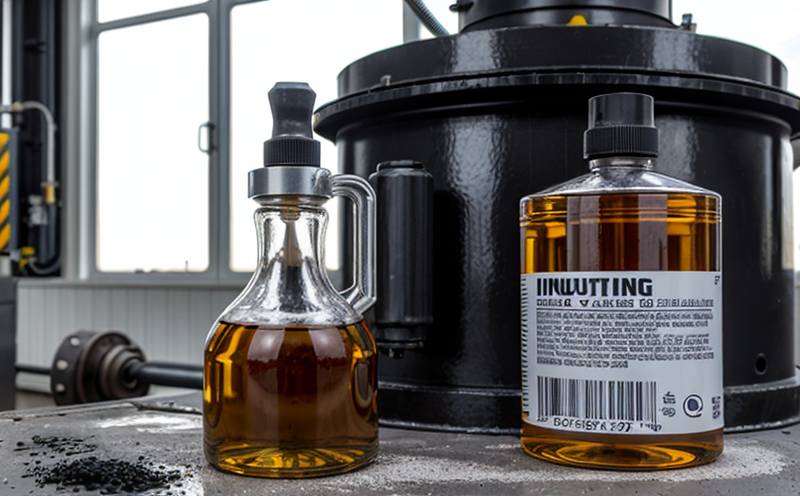ISO 6974 Natural Gas Additive Composition Testing
The ISO 6974 standard provides a comprehensive framework to ensure the reliability and effectiveness of natural gas additives. This testing ensures that additives are not only chemically compatible with natural gas but also meet stringent performance criteria, enhancing efficiency and safety in transportation systems.
In industrial settings, such as refineries and petrochemical plants, natural gas is often treated with various additives to improve its combustion efficiency, reduce emissions, and extend the operational life of engines. These additives can include antioxidants, detergents, metal deactivators, and other compounds designed to enhance performance.
The testing process outlined in ISO 6974 involves a series of steps to ensure that the additive composition meets specific chemical and physical requirements. This includes:
- Qualitative analysis of additives using spectroscopic methods (e.g., infrared spectroscopy).
- Quantitative determination of various components through chromatographic techniques.
- Evaluation of the additive's stability over time and under different environmental conditions.
- Determination of the additive’s compatibility with natural gas and other pipeline materials.
The results of this testing are critical for quality managers, compliance officers, R&D engineers, and procurement teams as they ensure that the additives used meet all required standards. This not only enhances operational efficiency but also minimizes potential risks associated with using substandard products.
For instance, incompatibility between natural gas additives and pipeline materials can lead to severe issues such as corrosion or blockages, which can disrupt supply chains and cause significant economic losses. By adhering to ISO 6974 standards, these problems are mitigated, ensuring a safer and more reliable operation.
The testing process is designed to be rigorous and precise, employing state-of-the-art analytical equipment to ensure accuracy. This precision is crucial in the context of industrial oil and additive testing as even small variations can have significant impacts on performance metrics like combustion efficiency or emissions levels.
Why It Matters
The significance of ISO 6974 Natural Gas Additive Composition Testing cannot be overstated. Compliance with this standard is essential for maintaining the integrity and safety of natural gas distribution systems, which are integral to modern infrastructure.
Firstly, it ensures that additives do not degrade over time, thus preserving their effectiveness throughout the lifecycle of the product. This longevity is critical in ensuring consistent performance across various operational conditions. Secondly, by adhering to ISO 6974 standards, industries can minimize environmental impact through reduced emissions and improved combustion efficiency.
Additionally, this testing helps in identifying potential issues early on, allowing for corrective measures before they escalate into major problems. This proactive approach not only reduces maintenance costs but also extends the service life of equipment and infrastructure.
Why Choose This Test
- Ensures compliance with international standards, enhancing reputation and trust among clients.
- Guarantees accurate additive composition, leading to improved performance and reduced operational costs.
- Mitigates risks associated with substandard additives, protecting both the environment and the business’s bottom line.
- Supports continuous improvement in product quality through regular testing and analysis.
Competitive Advantage and Market Impact
The implementation of ISO 6974 Natural Gas Additive Composition Testing provides a significant competitive edge by ensuring that products meet the highest industry standards. This not only differentiates companies in their respective markets but also enhances customer satisfaction and loyalty.
By adhering to these stringent testing protocols, businesses can demonstrate their commitment to quality and sustainability, which is increasingly important for consumers and regulatory bodies alike. Furthermore, this testing ensures that products are compatible with a wide range of natural gas systems, broadening market reach and acceptance.
The ability to consistently meet or exceed industry standards also opens up opportunities for international collaborations and partnerships, fostering growth in the global market. In an era where environmental concerns are paramount, being able to provide reliable and sustainable solutions is more crucial than ever.





